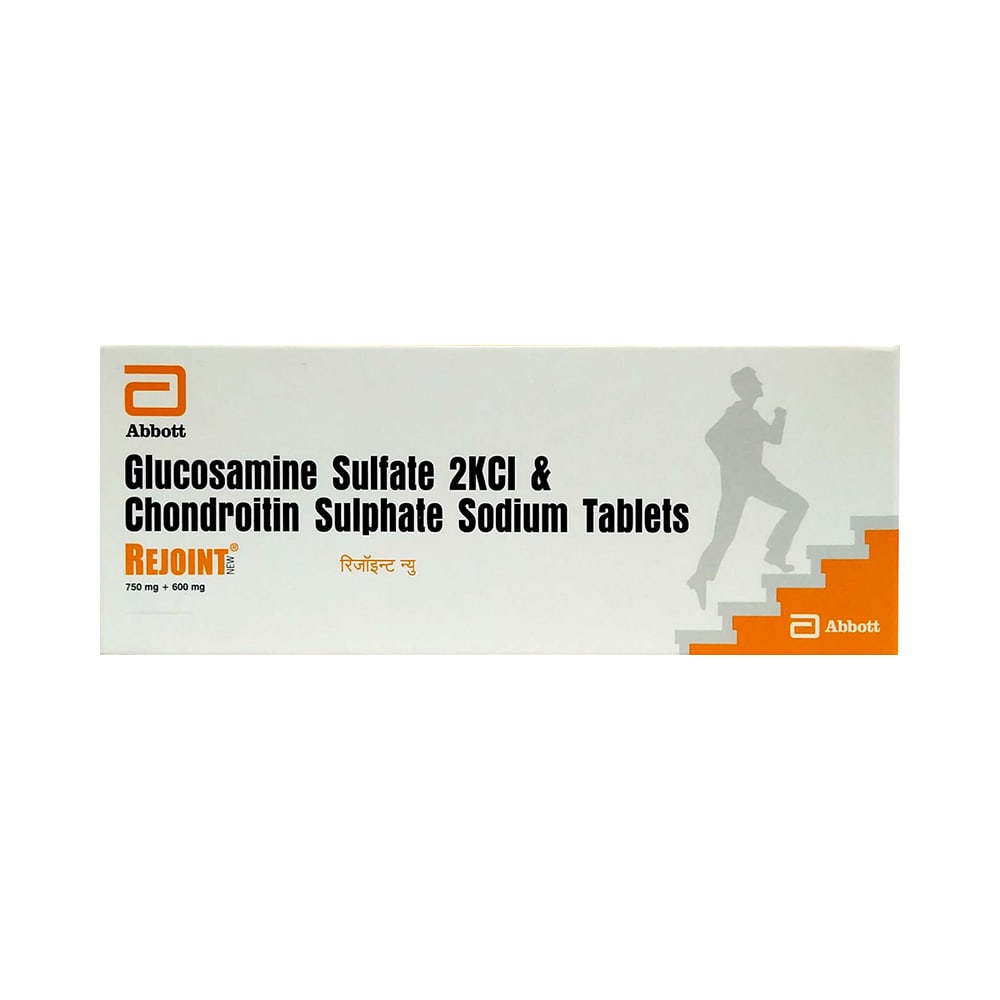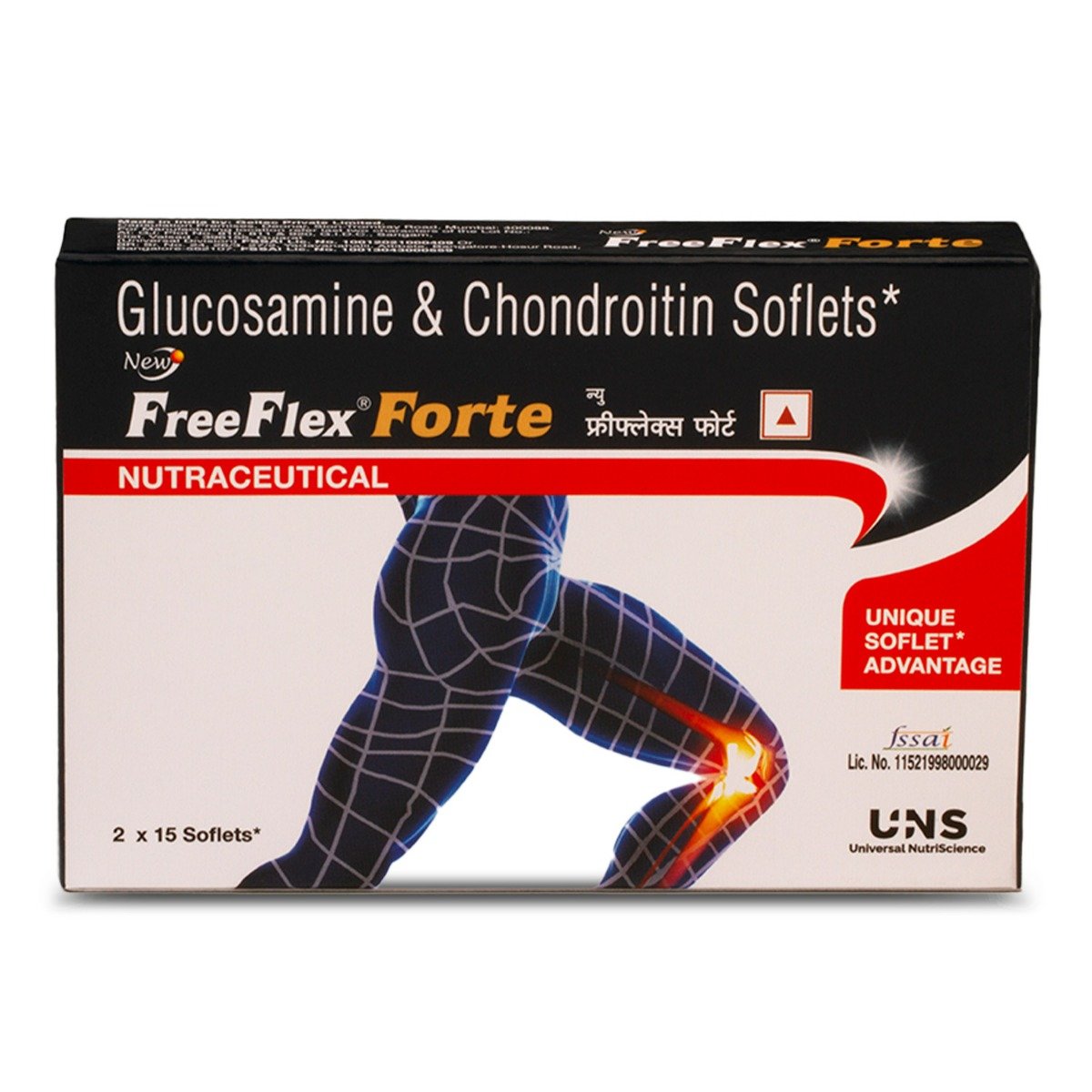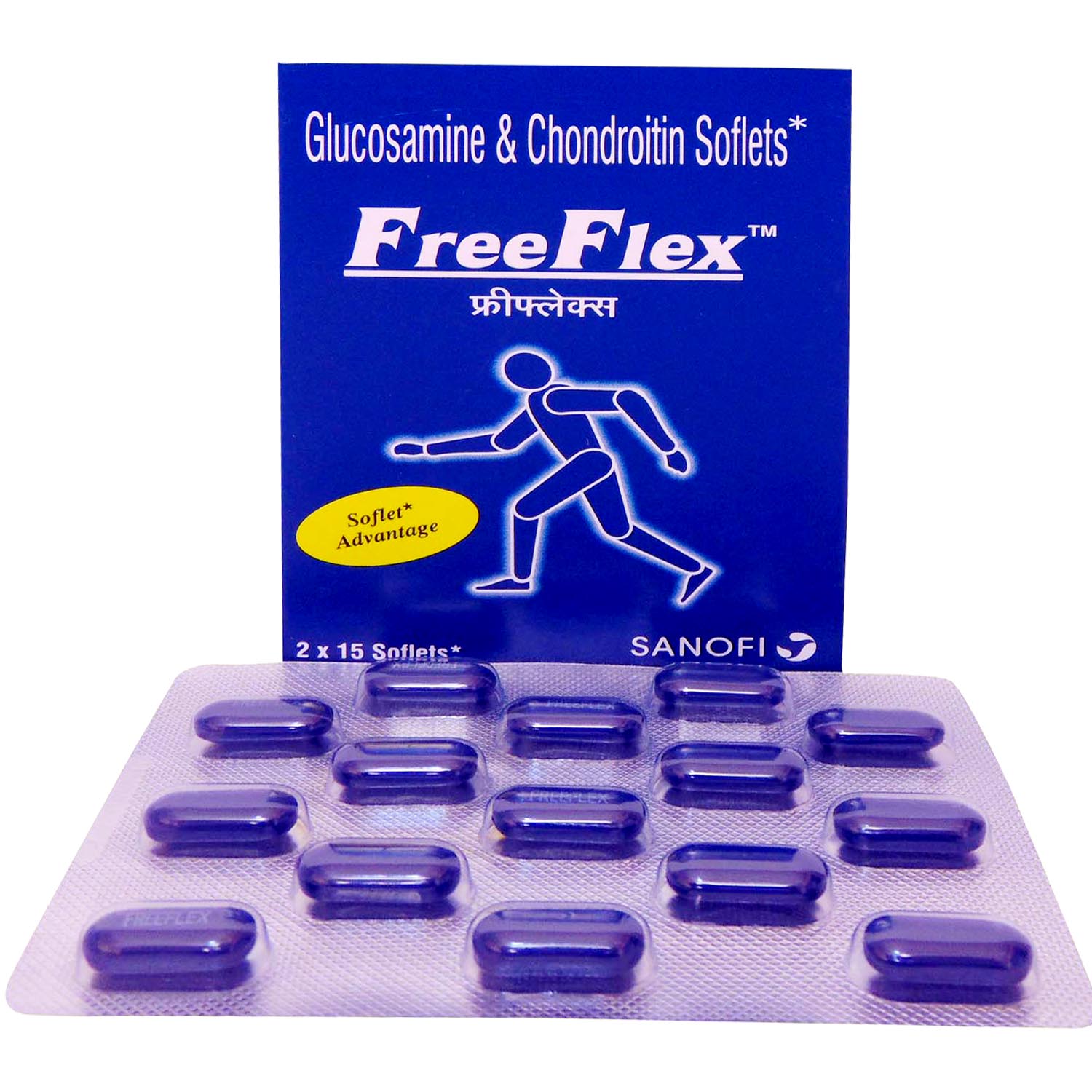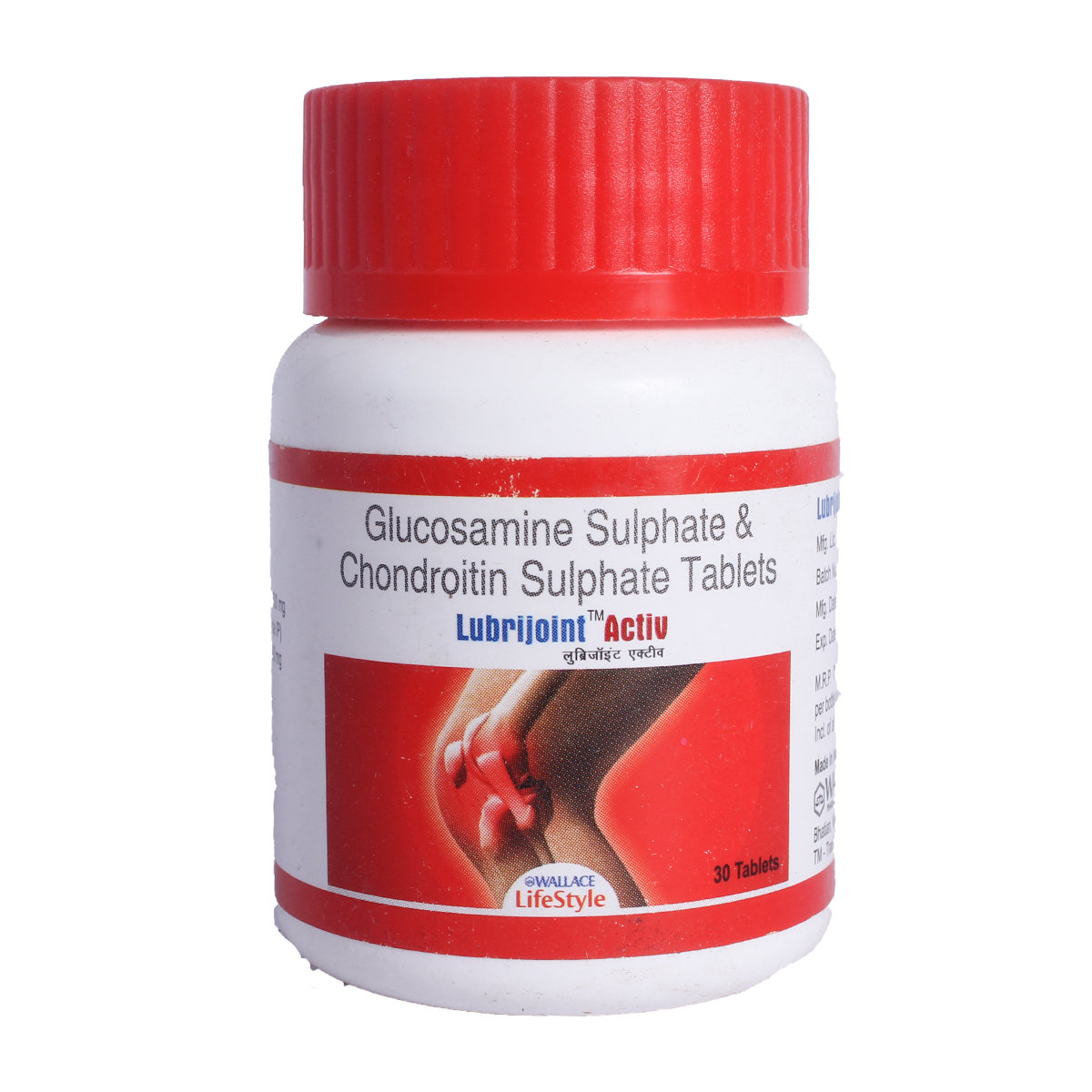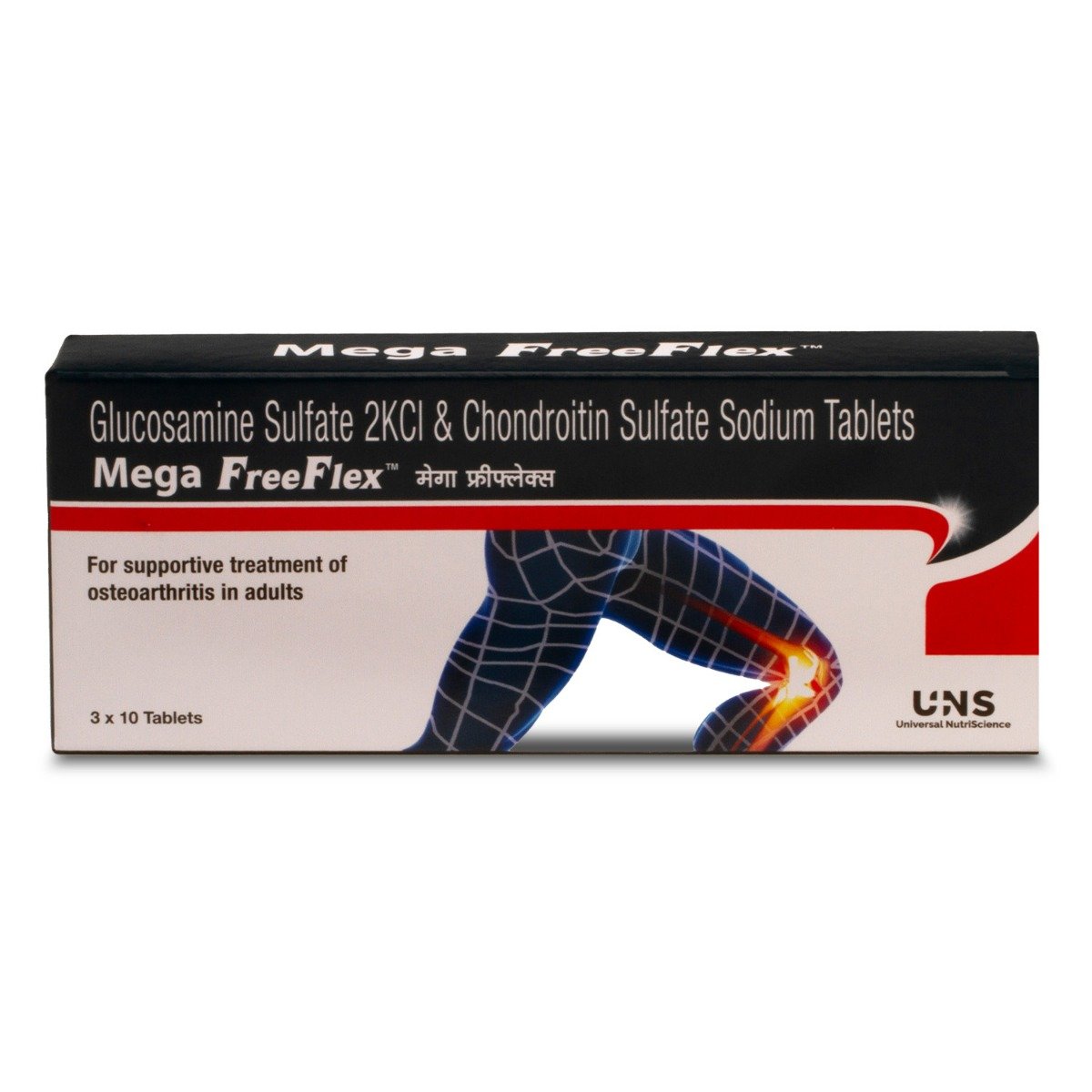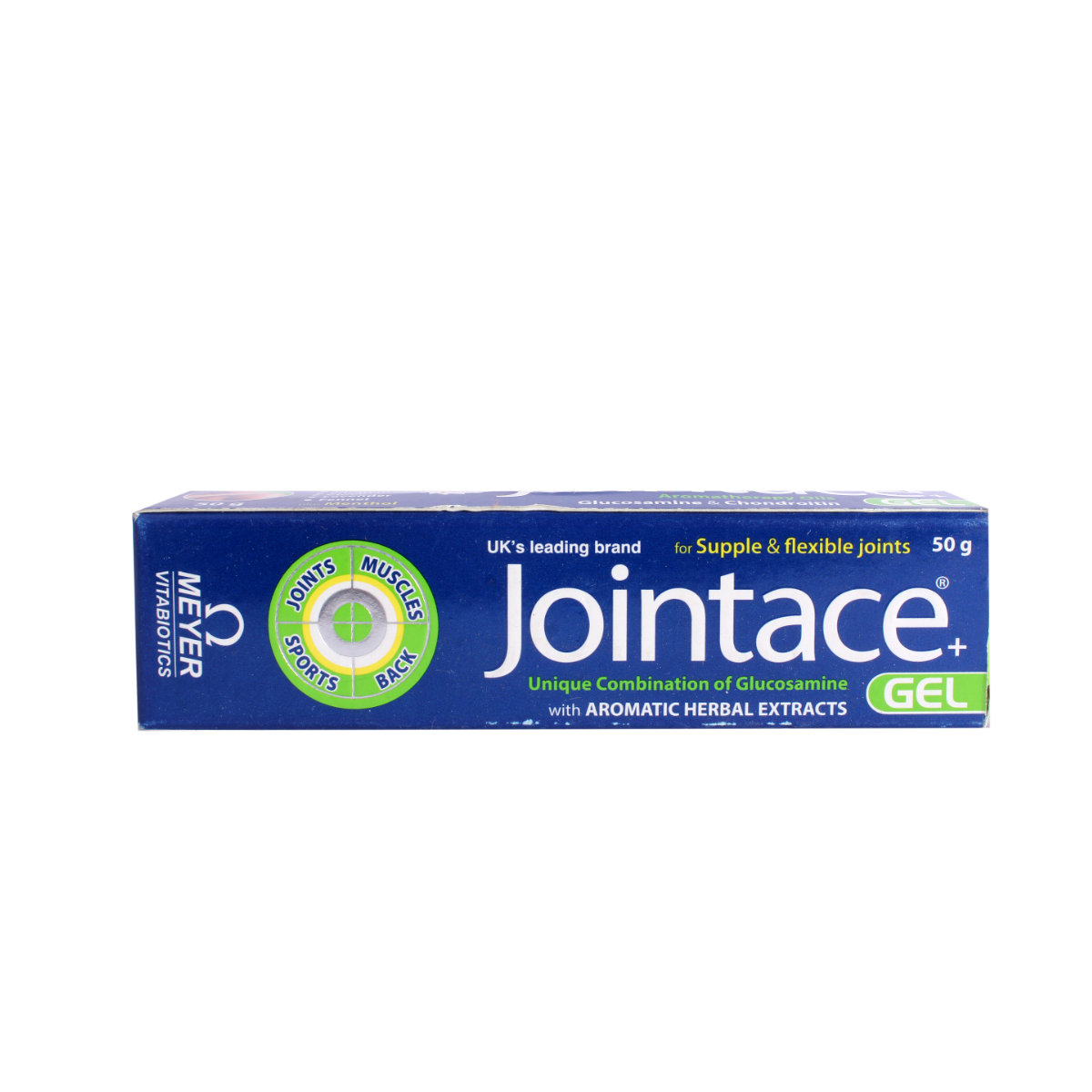Glucosamine+chondroitin Sulfate
About Glucosamine+chondroitin Sulfate
Chondroitin Sulfate+glucosamine belongs to a class of medications called 'proteoglycan synthesis stimulator', primarily taken to reduce the pain of osteoarthritis (OA) in specific large and small joints. Osteoarthritis is a chronic (lifelong) joint condition in which Glucosamine sulfate and Chondroitin (natural chemicals found in healthy cartilage) get reduced. The body uses this fluid to produce other chemicals required to make ligaments, cartilage, tendons, and the thick fluid surrounding joints. When this chemical gets reduced, the cartilage breaks down and becomes thin, which causes friction between the bones leading to wear and tear (damage) of the joint tissues leading to pain, stiffness, inflammation, and reduced locomotion.
The Chondroitin Sulfate+glucosamine comprises two medicines, namely Glucosamine and Chondroitin sulfate. Glucosamine sulfate is a natural protein found in the body used by the body to produce various chemicals responsible for building ligaments, cartilage, tendons, and the thick fluid surrounding joints. Taking Chondroitin Sulfate+glucosamine may either enhance the cartilage and fluid surrounding joints or prevent both components' breakdown. At the same time, Chondroitin restricts the action of a protein responsible for causing inflammation and destruction of cartilage or osteoarthritis. It also provides elasticity by helping cartilage to retain water. Both, in combination, assist in the formation of cartilage (the soft tissue that cushions the joints) and make the joints lubricated for better movement and flexibility. Chondroitin Sulfate+glucosamine relieves pain, thereby improving joint function and helping individuals restore their quality of life. It also increases the cushioning and lubrication of joints that, provide relief in pain and easily do physical activity.
Take Chondroitin Sulfate+glucosamine as prescribed by your doctor. You are suggested to take Chondroitin Sulfate+glucosamine as long as your doctor has prescribed it after checking your medical condition. Sometimes, you may experience certain common side effects, such as headache, tiredness, nausea, abdominal pain, indigestion, diarrhoea, constipation, and wind. Most of these side effects do not require medical attention and resolve gradually over time. However, you are advised to talk to your doctor if you experience these undesirable effects persistently.
Chondroitin Sulfate+glucosamine is not allowed to be used in children younger than 18. Consult your doctor if you have ever had blood clots or circulation problems in your legs or if you are pregnant or planning to be pregnant, as this may harm an unborn baby. Tell your doctor if you are breastfeeding as It may not be safe to breastfeed a baby while taking Chondroitin Sulfate+glucosamine. People with joint infection or skin disease in the affected area should consult a doctor before taking Chondroitin Sulfate+glucosamine. People dealing with impaired glucose tolerance, kidney or liver dysfunction risk factors for heart (cardiovascular) disease, and who have asthma should take Chondroitin Sulfate+glucosamine with caution.
Uses of Glucosamine+chondroitin Sulfate
Medicinal Benefits
Chondroitin Sulfate+glucosamine has anti-inflammatory (reduces pain and inflammation) properties and slow deterioration of cartilage (joints) and pain, swelling, and other symptoms associated with osteoarthritis. This combined medicine also has cartilage-protecting effects and helps to maintain cartilage structure. The Chondroitin Sulfate+glucosamine compromises two medicines, namely Glucosamine and Chondroitin sulfate. Glucosamine sulfate is a natural protein found in the body used by the body to produce various chemicals responsible for building ligaments, cartilage, tendons, and the thick fluid surrounding joints. Taking Chondroitin Sulfate+glucosamine may either enhance the cartilage and fluid surrounding joints or prevent both components' breakdown. At the same time, Chondroitin restricts the action of a protein responsible for causing inflammation and destruction of cartilage or causing osteoarthritis. It also provides elasticity by helping cartilage to retain water. In combination, both help form cartilage (the soft tissue that cushions the joints) and make the joints lubricated for better movement and flexibility. Chondroitin Sulfate+glucosamine relieves pain, thereby improving joint function and helping individuals restore their quality of life. It also increases the cushioning and lubrication of joints, relieves pain and easily does physical activity.
Directions for Use
Storage
Side Effects of Glucosamine+chondroitin Sulfate
- Nausea
- Diarrhoea
- Headache
- Tiredness
- Indigestion
- Constipation
- Abdominal pain
- Wind (flatulence)
Drug Warnings
Consumption of alcohol should be avoided during the treatment with Chondroitin Sulfate+glucosamine as it may lead to an increased risk of liver damage. Patients with blood clots or leg circulation problems should not take Chondroitin Sulfate+glucosamine. Although it is generally a safe medicine, it should be avoided in patients with liver and kidney disease as the Chondroitin Sulfate+glucosamine may harm the liver and renal functions. Use caution in pregnancy and breastfeeding. Do not self-administer Chondroitin Sulfate+glucosamine if you are pregnant or are nursing. Although Chondroitin Sulfate+glucosamine provides symptomatic relief in conditions like arthritis and may reduce the inflammation caused by these conditions, it is strongly recommended to remain physically active as much as your condition allows to achieve the best results. Adopting a healthy lifestyle and a diet containing high proteins is the mainstay for managing arthritic conditions.
Drug Interactions
Drug-Drug Interactions: Chondroitin Sulfate+glucosamine can interact with medicines used for blood thinning (Warfarin), medications for cancer (Paclitaxel), painkillers (Acetaminophen), and anti-diabetics (glimepiride, pioglitazone).
Drug-Food Interactions: Avoid intake of Vitamin E, St. John’s wort (antidepressant), and Ginkgo Biloba with Chondroitin Sulfate+glucosamine.
Drug-Disease Interactions: People dealing with impaired glucose tolerance, kidney or liver dysfunction risk factor for heart (cardiovascular) disease, and suffering from asthma should take Chondroitin Sulfate+glucosamine with caution.
Drug-Drug Interactions Checker List:
Safety Advice

Alcohol
unsafeYou are recommended not to consume alcohol along with Chondroitin Sulfate+glucosamine to avoid unpleasant side-effects.

Pregnancy
cautionPlease consult the doctor. There are no adequate and well-controlled studies on pregnant women. Your doctor will prescribe only if the benefits outweigh the risks.

Breast Feeding
cautionConsult your doctor; there is no substantial research yet on using Chondroitin Sulfate+glucosamine in breastfeeding/nursing mothers. our doctor will prescribe only if the benefits outweigh the risks.

Driving
cautionDriving after taking Chondroitin Sulfate+glucosamine is not recommended as it may occasionally cause drowsiness or fatigue.

Liver
cautionChondroitin Sulfate+glucosamine to be taken with caution, especially if you have a history of liver diseases/conditions. The dose may have to be adjusted by your doctor.

Kidney
cautionChondroitin Sulfate+glucosamine to be taken with caution, especially if you have a history of kidney diseases/conditions. The dose may have to be adjusted by your doctor.

Children
unsafeChondroitin Sulfate+glucosamine can not be given to persons younger than 18 years of age. The safety and effectiveness of Chondroitin Sulfate+glucosamine have not been established.
Habit Forming
Diet & Lifestyle Advise
- Maintain a healthy body weight because obesity can lead to joint pain. Please avoid strenuous exercise as it may aggravate your arthritis-related joint pain. Instead, you can stretch and engage in low-impact aerobic activities such as treadmill walking, biking, and swimming. Lifting light weights can also help to improve your muscle strength.
- Increase your intake of glucosamine, chondroitin sulphate, vitamin D, and calcium-rich supplements. Aside from that, turmeric and fish oils can help to reduce tissue inflammation.
- Include fish such as salmon, trout, tuna, and sardines in your diet if you have arthritis or joint pain. These fish are high in omega-3 fatty acids, which aid in the reduction of inflammation (redness and swelling) and protect the heart.
- Your sitting posture is critical, especially if you suffer from pain or inflammation. Try to sit as little as possible and only for a short period of time (10-15 min). Place a rolled-up towel at the back of your curve to alleviate pain. In addition, if necessary, a footrest can be used.
- Follow heat or cold therapy by applying a cold or hot compress to the joints on a regular basis for 15-20 minutes.
- Relax by meditating, reading, taking a nice bubble bath, or listening to calming music.
- Avoid drinking alcohol and quit smoking.
Patients Concern
Disease/Condition Glossary
Pain: Pain is an unpleasant sensation and emotional experience that is associated with tissue damage. It allows the body to react and prevent further tissue damage. Pain can be short-term (acute) or long-term (chronic). Pain perception can differ from person to person, from tolerable to non-tolerable.
Osteoarthritis: Osteoarthritis is a chronic (lifelong) joint condition in which the Glucosamine sulfate (a chemical found in the human body, especially in joints) gets reduced. The body uses this fluid to produce other chemicals required to make ligaments, cartilage, tendons, and the thick fluid surrounding joints. When this chemical gets reduced, the cartilage breaks down and becomes thin, which causes friction between the bones leading to wear and tear (damage) of the joint tissues leading to pain, stiffness, inflammation, and reduced locomotion. It causes the bone to rub together, leading to pain, stiffness, and other osteoarthritis symptoms. This disease can occur in any joint, but commonly affected areas of the body are hands, fingertips, knees, hips, and spine, typically at the neck or lower back. The most common osteoarthritis symptoms include pain, tenderness (discomfort when pressing on the area with fingers), stiffness, and inflammation.
FAQs
Though some persons think that exercise will increase their joint pain, that's not the case. Lack of exercise can make your condition worst, so do light exercise or walk to keep your supporting bones healthy and strong or as advised by your doctor.
Some research has shown that stretching may improve flexibility and even improve the movement of joints. For better flexibility, an individual should increase their performance in physical activities.
Chondroitin Sulfate+glucosamine is not suggested in patients having liver problems. Chondroitin Sulfate+glucosamine is also not administered to patients with known allergies to Chondroitin Sulfate+glucosamine.
The safety and effectiveness of Chondroitin Sulfate+glucosamine in joints other than the knee have not been established. So its use in parts other than the knee joint should be avoided unless prescribed/advised by a doctor.
Glucosamine sulfate is a natural protein found in the body used by the body to produce various chemicals responsible for building ligaments, cartilage, tendons, and the thick fluid surrounding joints. Taking Chondroitin Sulfate+glucosamine may either enhance the cartilage and fluid surrounding joints or prevent both component's breakdown.
You are advised to tell your doctor if you have diabetes, high cholesterol or triglycerides (a type of fat in the blood), cancer, liver disease, asthma, or other breathing disorder if you are allergic to shellfish, or you have taken a blood thinner (warfarin, Coumadin, Jantoven).
Some research suggests that the presence of Glucosamine in Chondroitin Sulfate+glucosamine may affect antidiabetic drugs; it can also increase the blood sugar level in type 2 diabetes. This is why it is suggested to go for regular blood sugar checkups with type 2 diabetes.
Chondroitin Sulfate+glucosamine may increase the risk of bleeding in people taking Warfarin, so it is advised to tell your doctor if you are taking Warfarin or any other medicine.
Some research suggests that glucosamine sulfate may enhance insulin levels in the body which can increase blood pressure. To be safer, go for regular blood checks and closely monitor your blood pressure and consult your doctor for further advice.
It has been noticed that Chondroitin Sulfate+glucosamine may cause allergic reactions in persons who are sensitive to shellfish. Glucosamine is produced synthetically from the shells of shrimp, lobster, and crabs.
Some research suggests that Chondroitin Sulfate+glucosamine may increase pressure inside the eye and may worsen glaucoma. So if you have glaucoma, then inform your doctor about your condition.

